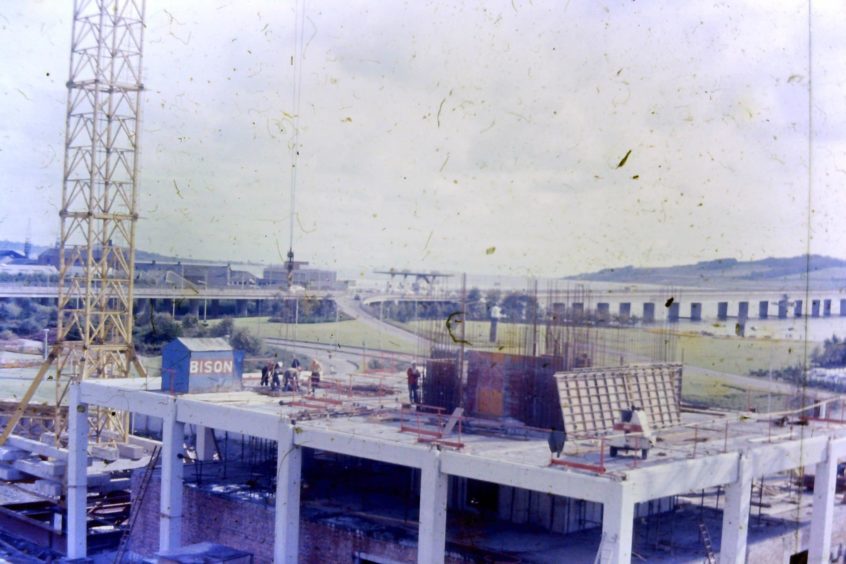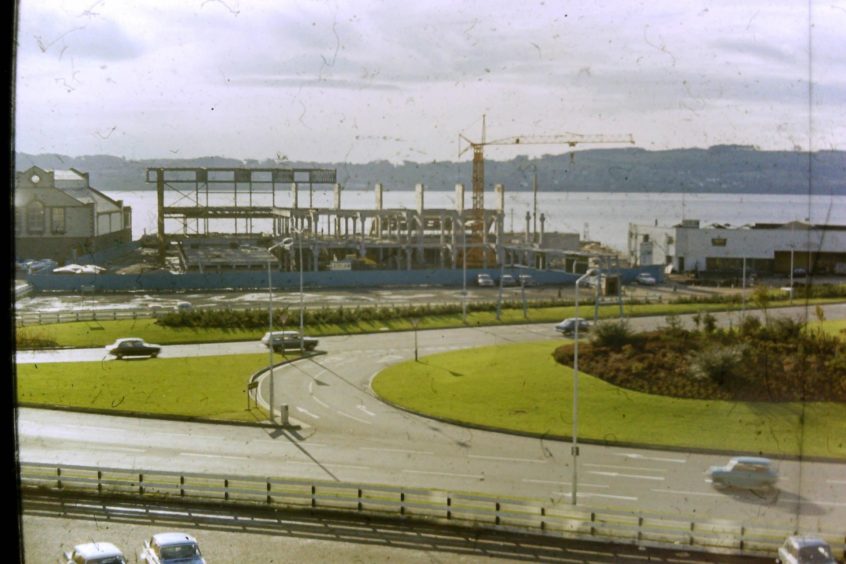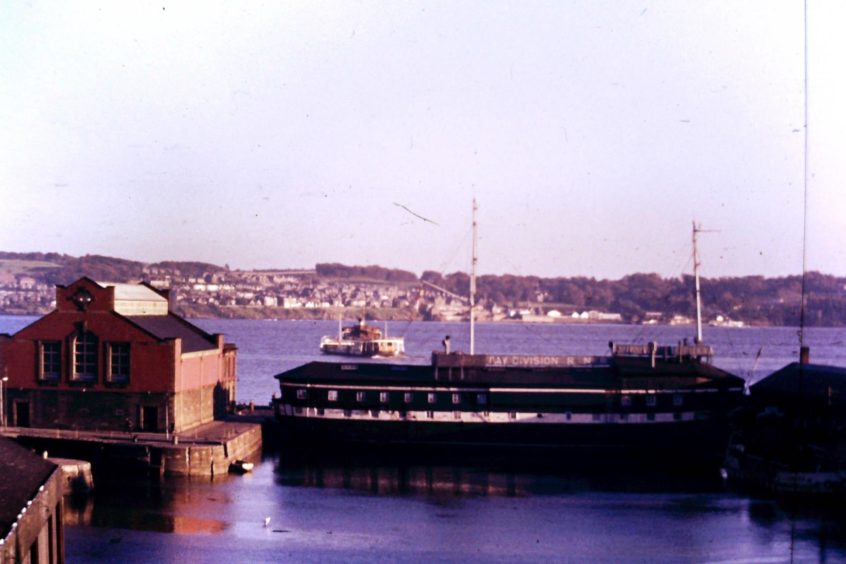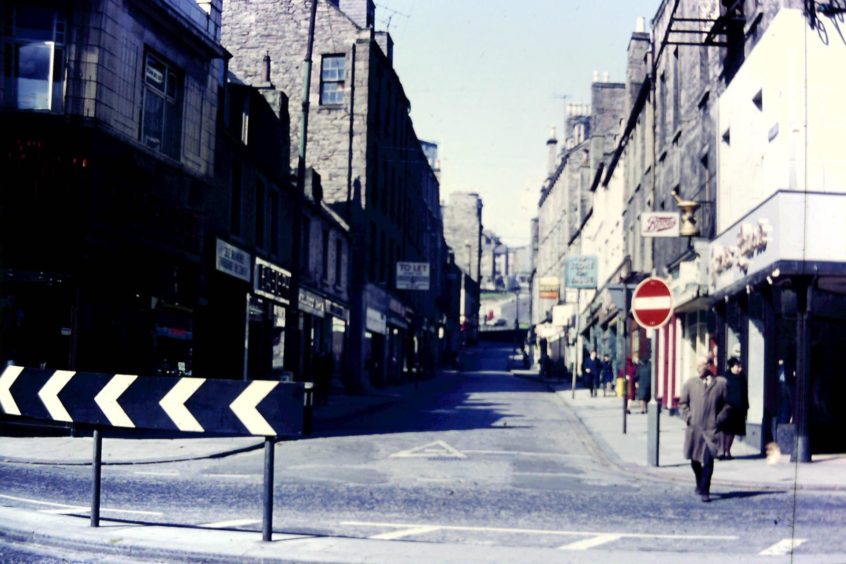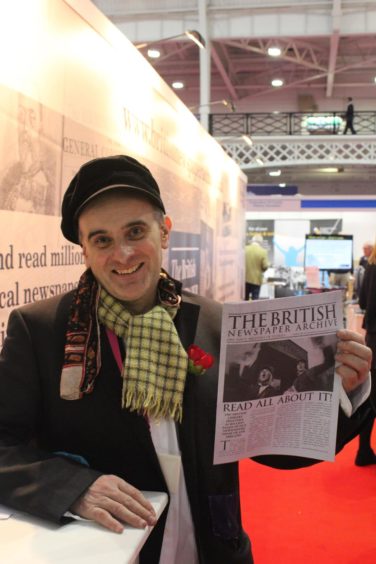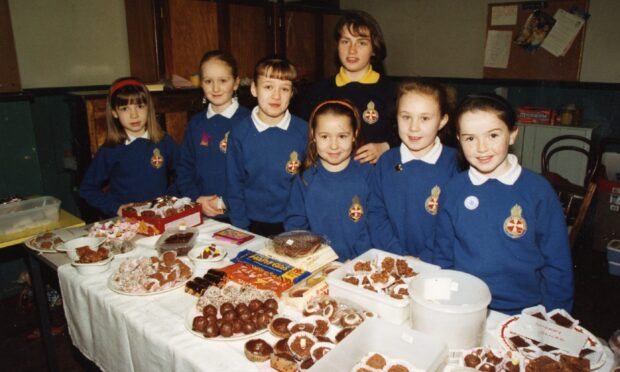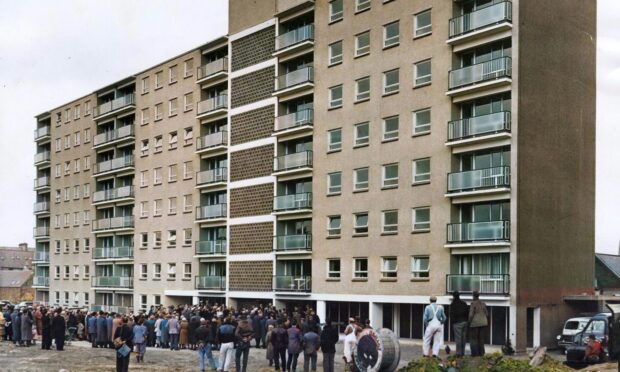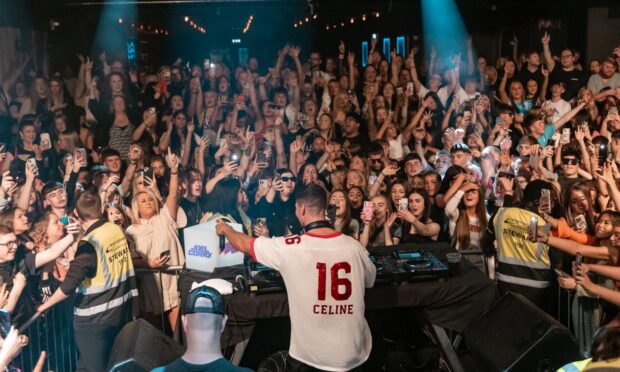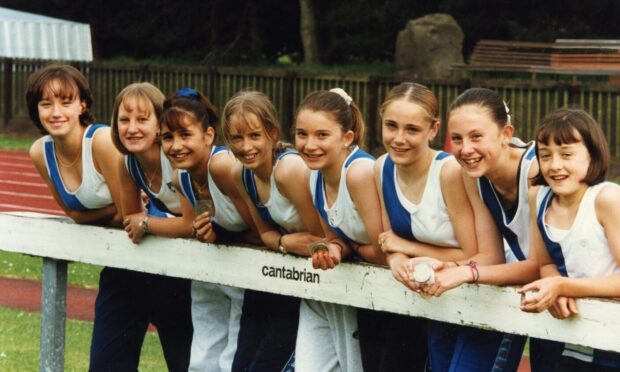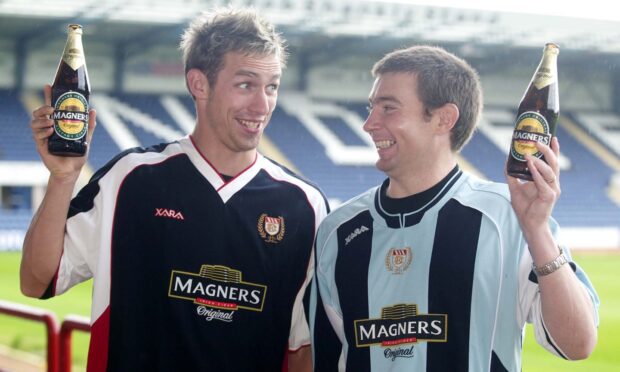A treasure trove of old slides and cine reels which were tucked away in cardboard boxes have conjured up a fascinating glimpse of Dundee’s past.
The old images and videos had lain untouched for decades, before being digitised to provide a nostalgic reminder of some of the city’s important historical events.
Grant Millar from Monifieth discovered the incredible footage while looking through his father Stanley’s belongings following his death three years ago.
Historical moments in Dundee’s history
Grant’s father recorded family life in the 1950s, 60s and 70s, while a few of the films captured headline-grabbing events, such as a trip on one of the last ‘Fifie’ sailings in 1966 with the Tay Road Bridge under construction in the background, and another capturing the Kate Kennedy Parade in Dundee’s Reform Street in 1967.
“Although I knew a wee bit about my dad’s cine films, it was only really when he died three years ago that I rediscovered them,” said Grant.
“It’s an emotional experience seeing beloved relatives who have long since passed, suddenly moving about on a computer screen.
“Now that these films are in digital format, copies of the files on memory cards have been sent all over the world to far-flung relatives.”
There is also film of Grant parents’ wedding at St David’s North Church and the Invercarse Hotel in Dundee in August 1959.
Iain MacMillan, the Dundee photographer who took the famous Abbey Road photo of the Beatles, makes a brief appearance as a 20-year-old ‘Teddy Boy’.
Around the same time when excavating Stanley’s papers and belongings, Grant found an old box in a cupboard.
Grant said: “Inside the box was a collection of 35mm slides that I didn’t even know existed.
“Turns out they belonged to my mum (Elizabeth MacKenzie), which was a very happy discovery!
“Just prior to this discovery, a cousin gave me another box of 35mm slides that had belonged to an aunt (Elizabeth ‘Lyla’ Watson), with many of the slides containing images of Dundee’s waterfront in the 1960s and 1970s, just as the road bridge was being built.
“I would have liked to have seen some photos of my aunt, too, but she was always behind the camera – absent people in old photos being a sign of ‘the pre-selfie age’.”
Forgotten shops and hotels brought to life
It was a chance remark in a random conversation with Lesley MacMillan’s husband, Simon, that led to the digitisation of the cine films owned by the Mitchell family.
“Simon told me that Lesley’s family (the Mitchells) has 30 cine films in box in a loft somewhere and, in turn, I told them I had a cine film scanner,” said Grant.
“John McCann (Lesley’s grandfather) took the films owned by the Mitchell family.
“Although the Mitchell family’s films are mostly of relatives and friends there are various street scenes of Dundee in the late 60s and early 70s.
“When I saw these images coming through on the scanner’s preview screen it felt like I’d found historical treasure, and I knew that other Dundonians would love to see these films.
“The old-fashioned, green ‘Corpie’ buses, forgotten shops and hotels, the ‘auld-ish’ Overgate, ‘vintage’ cars – it’s like travelling in a Dundee-themed time machine!
“It was a lovely experience to bring these images into ‘the digital age’ – a privilege, in fact.
“Seeing the mix of Dundee and Australian films that belong to the Mitchell family also made me realise that families with relatives abroad likely swapped cine films to show how things were going.
“Another consideration is that I think it’s important to preserve these films, so that future generations of Dundonians can see how things once were in the city.
“Also, with everyone stuck indoors just now, I think seeing these ‘new’ old films helps to cheer folk and relieve the boredom for a while.”
Grant gets a great buzz from wearing the white gloves
Grant acquired a love of cine films from his father, including a quirky habit of looking for old cine projectors in Dens Road Market.
“It was really two jobs working in the cultural/historical sector that led me into the world of digitisation, although this was mixed in with studying History as a mature student at the University of Dundee in the 90s,” said Grant.
“When working on history essays, I loved visiting archives and handling original documents.
“I still get a ‘buzz’ from doing this, wearing the white gloves.
“Working as a content writer in the digitisation team at the National Library of Scotland (NLS) in the early 2000s showed me the potential of digitisation.
“Later, I worked as a marketing executive on the ScotlandsPeople and the British Newspaper Archive websites, and this was the main catalyst and inspiration for developing my digitisation skills, as well as enhancing my historical and ancestral research skills.
“I had to research at high speed to find interesting stories to promote launches of new records and for newsletters/blogs/social media – so this job was a mix of research, writing and digitisation.
“I also had to research quickly and accurately when doing searches for people at family history events, such as the ‘Who Do You Think You Are?’ show.
“In both these jobs, the digitisation and indexing of historical records was at the heart of everything.
“The genealogy job reactivated my historical research skills, which had lain dormant for a couple of years following a job change.
“This was another wonderful job!
“The experience of working in digitisation teams inspired me to learn more about digitisation processes.
“It started with scanning old photos, before moving on to transferring 35mm slides and photo negatives.
“Then somebody asked me if I could digitise a video for them, followed by another person asking if I could digitise some camcorder cassettes.
“After that, I learned how to digitise 8mm cine films, using my dad’s collection of films as test files.”
A new direction for Grant in 2021
Grant has been working in marketing and communications since 2000 before he was made redundant in October 2020.
That’s when he decided to make a living from his love of digitisation.
“Fingers crossed, I hope to keep on finding treasure, as people continue to have their family history documents digitised and preserved,” he said.
“Who knows what other historical riches are out there, stored away in old boxes in cupboards and lofts, just waiting to be discovered?”
